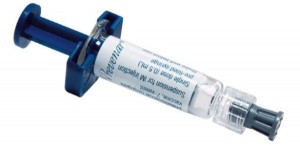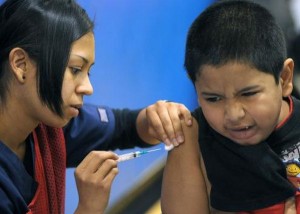Pneumonia is a serious respiratory illness that can affect children and older adults. The symptoms include cough, fever, difficulty in breathing and possibly chest pain. In case this situation complicates, it can be fatal and hence it is important to protect against this disease.
It can be prevented with the help of pneumococcal vaccines. There are different types of these vaccines and they are based on the serotypes of the pneumonia bacteria. They are PCV13 and PCV23.
Who should be vaccinated with PCV13 vaccine?
- Infants and children up to 2 years are generally recommended to have this as a routine vaccine. It begins with 2 months till 15 months of age. They comprise of series of doses and depend on the age of the baby when the vaccination begins.
- Younger children between 2 to 5 years, who have not been vaccinated earlier, should be vaccinated with at least one dose during this age. Certain medical conditions that affect the immune system need to be considered while taking these vaccinations and hence need to be discussed with the doctor.
- Elder children between 6 to 18 years and especially those suffering from diseases of the immune system are given a single dose of vaccination.
- Adults who have medical conditions like cancer, organ transplant, immunodeficiency or other conditions that can compromise the immune system and increase the chances of pneumococcal infections.
Who should be vaccinated with PCV23 vaccine?
Health prevention authorities recommend that all adults above the age of 65 years should be given this vaccine.
- Any child or adult between 2 to 64 years who has long term illness, diseases of the immune system, spleen or liver disorders, or is on long term steroids, cancer treatment, may be required to take the vaccine.
- Any person between 19 to 64 years who is a chronic smoker or is suffering from asthma is at risk and needs to be vaccinated.
- All those medical and paramedical professionals who are hospital residents or those who are exposed to long term medical care of patients are at an increased risk of catching infections and hence should be vaccinated.
These are general guidelines as given by the Centre for Disease Control and Prevention (CDC). It is important to be aware of this illness and the vaccines that can prevent it. Consult your physician and get to know what is helpful for you so that you can prevent the disease and protect your health.






